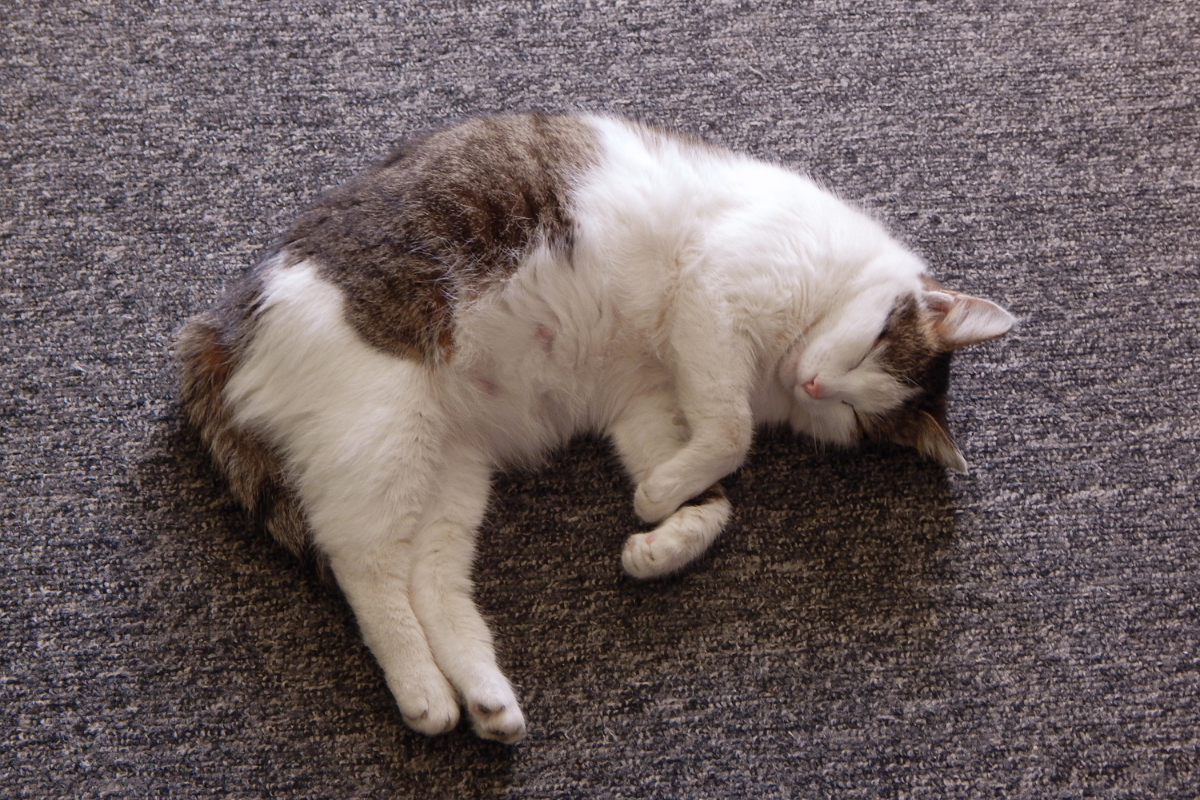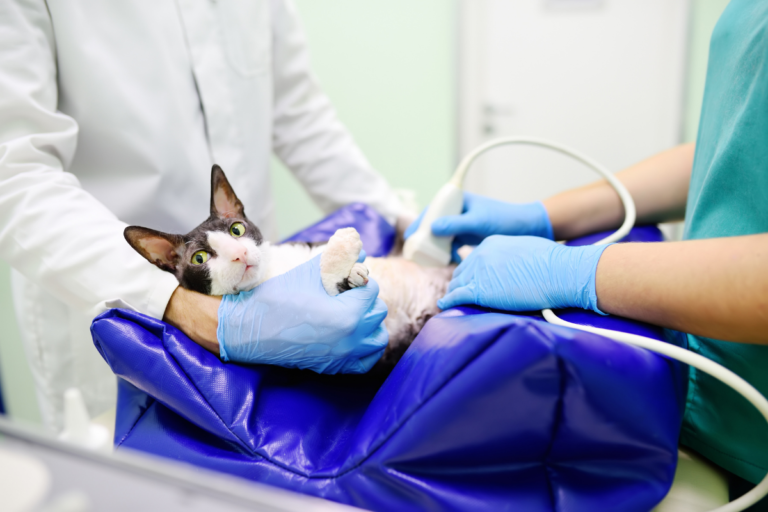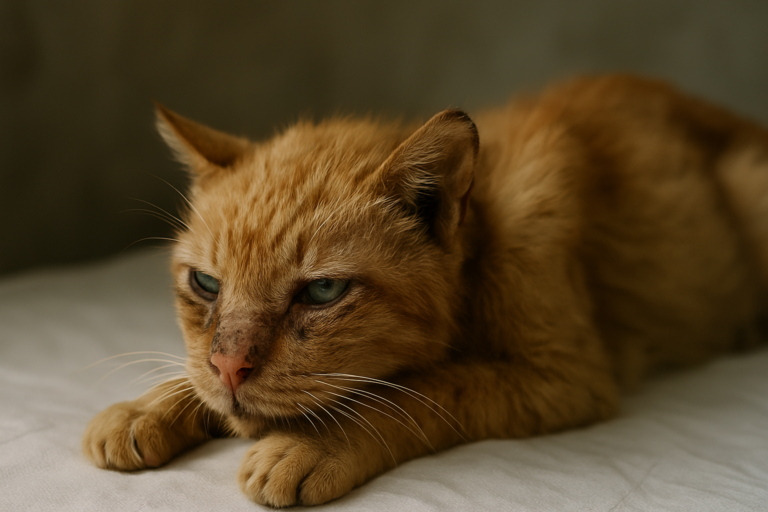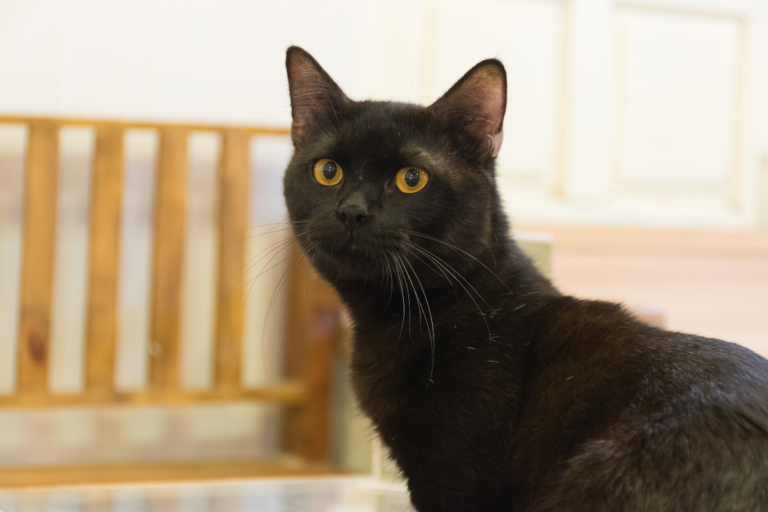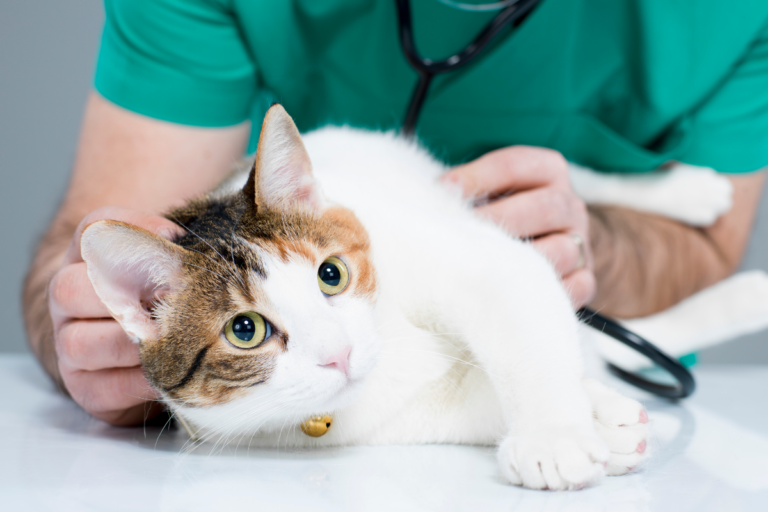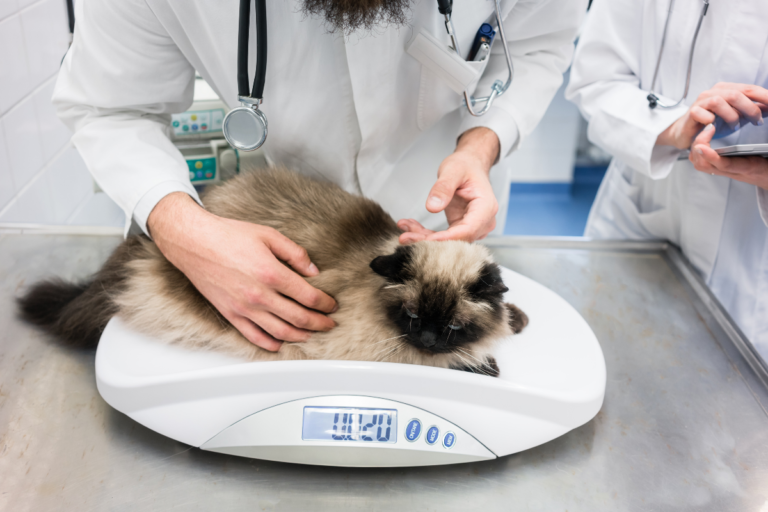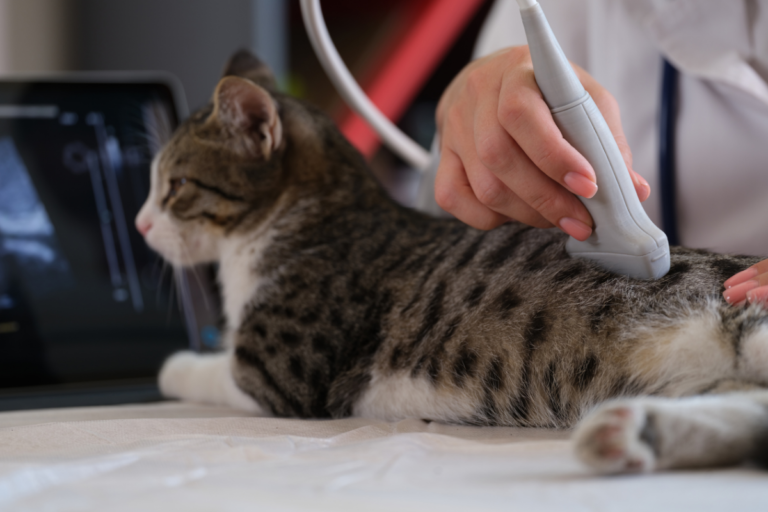Spotting the Signs: Detecting Cat Pregnant Symptoms Together
Signs of Cat Pregnancy
Duration of Feline Pregnancy
Getting the scoop on how long a cat’s pregnancy lasts helps us gear up and provide top-notch care for our whiskered buddies. Cats usually carry their little ones for close to 2 months (63-65 days), but it can stretch between 61 to 72 days. That gives cat parents roughly eight to ten weeks to get their ducks—or rather kittens—in a row. Chatting with a vet is super helpful here. More info can be found at Paws & Claws Veterinary Hospital.
| Day Range | Description |
|---|---|
| 61-65 days | Typical pregnancy stretch |
| 63-67 days | Common length |
| Up to 72 days | A bit longer than usual |
During the first few weeks, it can be tricky to catch any solid pregnancy signs. We’ve got about a month to keep an eye out and prep for those adorable bundles of fur. If our suspicions about a cat’s pregnancy arise, a vet visit is golden for nailing down timelines and spotting any possible hiccups. Your friendly neighborhood vet or resources like Purina UK are excellent for advice.
Physical Symptoms of Pregnancy
Keeping our eyes peeled for physical clues helps us identify early signs of pregnancy. Here’s what to watch:
- Enlarged Belly: One of the telltale signs is a bigger belly, becoming obvious around four weeks in. As weeks go by, the bump gets more noticeable.
- Pinking Up: A change in the cat’s nipples is another clue. By around three weeks, nipples might swell and change to a pinker color, an early pregnancy hallmark (PetCareRx).
- Gaining Weight: Expectant cats usually pack on some pounds as their little ones grow. The weight gain varies depending on how many tiny paws are on the way (Woodland Animal Hospital).
| Symptom | Timing | Description |
|---|---|---|
| Bigger Belly | 4 weeks | Noticeable tummy expansion |
| Pinking Up | 3 weeks | Nipples go pink and stand out more |
| Weight Gain | Throughout | Body weight increase as pregnancy rolls on |
Keep a close watch on these signs to know if a cat might be expecting. If you see them, a vet check-up to confirm and get further advice is always a savvy move.
For more cat tips and tricks, check out:
By being attentive and ready, we can make sure our pregnant cats are comfy and spoiled during this special time.
Progression of Cat Pregnancy
Understanding feline pregnancy is like having a backstage pass to the miracle of life – fluffy style! Let’s chat about how to spot the stages and symptoms of carrying kittens, so we can be the best sidekicks to our cats during their maternal adventure.
Early Signs of Pregnancy
So, your cat’s been acting a little…different? It’s time to play detective and look for those early whispers of pregnancy. These hints pop up a few weeks after the magic happens, and a vet visit is your next best move.
- Behavioral Quirks: You might catch Fluffy purring in your lap more than usual, or maybe she’s got a sudden interest in redecorating her space. She’s nesting, getting her crib ready for the little ones. It’s adorable and a bit unpredictable! (Woodland Animal Hospital).
- Physical Clues: Check those nipples around the third week. They’re doing a little dance called “pinking up” – turning pinker, getting a tad plumper, and more noticeable. Add a sprinkle of extra weight, and you’ve got some solid evidence right there.
- Lazy Days and Chatty Nights: If she’s snoozing more or meowing in new vocal pitches, she’s sending signals. Listen up, because her eating habits might also play a bit of musical chairs during this time.
| Symptom | Description |
|---|---|
| Pinked-Up Nipples | Think pink and plump |
| Weight Gain | A little extra fluff happening |
| Behavioral Quirks | Lovey-dovey or mini house projects |
| Lethargy | More cat naps and sleepy vibes |
Later Stage Symptoms
By week five or six, your kitty’s belly has a party of its own, signs are more than whispers now, and things are getting real.
- Tiny Miracle Development: Inside her expanding belly, kittens are busy growing organs and honing in their kitten kung-fu skills.
- Noticeable Weight Gain: As the weeks fly by, that scale doesn’t lie. More kittens equals more weight, so expect some growing curves.
- Ballooning Belly: By week four, it’s almost like she’s smuggling softballs. You might even notice some fur around her nipples disappearing.
- Milky Way: If you spot a milky drip from her nipples, it’s just nature’s way of setting up the kitten café.
| Symptom | Description |
|---|---|
| Weight Gain | The scale’s got something to say |
| Ballooning Belly | The belly’s prepping for its big moment |
| Enlarged Nipples | Bigger and bolder |
| Milky Way | Ready for milkshake hour |
Want to see how this links to her weight through life? Peek at our tips on healthy cat weight.
Signs of Approaching Labor
Tick-tock – it’s almost time! About a week out from the grand event, the clock starts ticking softer, and the signs of labor sneak in.
- Nest Quest: Your furry architect might choose a cozy corner as her command center for labor – smart cookie.
- Active Labor Adventure: Stage one is like warming up for a marathon – contractions get the action started over six to twelve hours. Stage two is showtime: kittens make their debut in intervals. Stage three wraps it up as the placenta exits, taking its sweet time (The Spruce Pets).
| Labor Stage | Duration | Description |
|---|---|---|
| First Stage | 6-12 hours | Those contractions mean business |
| Second Stage | Varies | Kitten crew makes its entrance |
| Third Stage | 2 hours+ | Placenta delivers an encore |
Let’s make sure home is prepped, comfy, and kitten-ready. For more cool tips on keeping your whiskered friend healthy during all this, check out cat illness insights.
Monitoring Cat Health
Keeping an eye out for our cat’s well-being is super important, especially if we think she might be expecting. Here’s a look at how we can spot signs of sickness and, sadly, the indications that our feline friend may be nearing the end of her journey.
Recognizing Illness in Cats
We gotta pay attention to any switch-ups in our furry pal’s mood or physical condition. If our usually cheerful kitty suddenly starts acting differently, like showing changes in her looks, energy, friendliness, coat, eating and drinking habits, litter box routine, breathing, or if she’s got funky stuff coming from her eyes or nose, it’s time to ring up the vet (VCA Hospitals).
Symptoms to Watch For:
- Appearance and Coat: If her fur’s looking a bit shabby – too greasy, tangled, not well-groomed, losing its usual shine, or flakier than usual, there could be something going on (VCA Hospitals).
- Energy Levels: Sometimes, cats just want to be alone, or sometimes they start needing way too much attention. If she’s extra sleepy or can’t sit still, that’s a sign we need to watch.
- Appetite and Thirst: Notice any changes in eating or drinking? Whether she’s eating more or less, it could spell trouble. Hungry and thirsty all the time? Could be a sign of something like thyroid problems or diabetes. Not eating at all? Could lead to serious stuff like liver issues (VCA Hospitals).
- Dehydration: We can check for dehydration by gently lifting the skin by her shoulder blades; if it doesn’t spring back pronto, it means she might need some help (VCA Hospitals).
| Symptom | Possible Condition |
|---|---|
| Greasy/Matted Coat | Skin infection, not getting proper nutrition |
| Increased Thirst | Diabetes, kidneys might be acting up |
| Low Energy | Might be a chronic thing, or kitty depression |
| Change in Appetite | Could be dental issues or thyroid stuff |
Signs of a Dying Cat
It’s tough, but catching signs that our cat might be in her last days means we can make sure she’s comfy towards the end. Look out for her hiding away, being less aware, moving less or more, vocalizing oddly, acting aggressive, slacking on grooming, not eating, or seeming wobbly.
Physical Symptoms:
- Weight Loss: She’s dropping pounds noticeably.
- Lethargy: Seeming zonked out constantly.
- Sunken Eyes: Suggests dehydration or she’s really unwell.
- Respiratory Issues: Any struggling to breathe or odd patterns.
- Vomiting/Diarrhea: Ongoing tummy troubles.
- Low Body Temperature: Feels chilly to the touch.
| Symptom | Monitoring/Next Steps |
|---|---|
| Weight Loss | A vet needs to check if she’s losing weight fast (healthy cat weight) |
| Lethargy | Keep an eye if she’s doing almost nothing |
| Respiratory Issues | Get to the vet as soon as you can |
| Vomiting/Diarrhea | Make sure she’s drinking, call the vet if it doesn’t stop |
Reaching out to our vet right away if she’s acting off or seems terminally ill gives us the lowdown and helps us care for her properly through tough times. For more insights on spotting and dealing with cat health problems, check out our tips on recognizing illness in cats and signs of a dying cat.
Care for Pregnant Cats
Handling a pregnant cat ain’t as tricky as doing long division, but it does take some know-how and a bit of love. Here, we’re gonna chat about why it’s smart to involve a vet and how neutering stops kittens in their furry tracks.
Veterinary Guidance
First things first: if we think Mittens might be expecting, it’s time to pop by the vet. According to Blue Cross, they can confirm with a few tools of the trade, like feeling her belly, or getting snazzy with X-rays and ultrasounds:
| What’s the Method? | How’s it Work? |
|---|---|
| Tummy Check | Feel around Mittens’ middle to spot the little ones. |
| X-ray | Snap a skeletal selfie of the kittens. |
| Ultrasound | Use sound waves to see the future furballs. |
Why rush to the vet so quick, you ask? Well, they ensure mama cat stays shipshape through the whole kitten-carrying gig. Besides giving the thumbs-up on the pregnancy, the vet dishing out advice on meals, extra vitamins, and maybe moving her box to a quieter corner. They clue us in on what changes to expect and how to handle the big day when the kittens make their grand entrance.
Skipping those regular vet check-ups? Not an option. We gotta keep tabs on how the bun(s) in the oven are cooking! A few rogue symptoms might just need extra snooping. Wanna get ahead of any kitty ailments? Check out our deep dive on cat illness.
Neutering and Preventative Care
Stopping more surprise litters keeps the cat crowd manageable and fends off some bad kitty juju. Stopping kittens in their tracks is as easy as neutering, which is science-speak for spaying if your cat’s a lady. The smarty-pants at Blue Cross give it two paws up, generally recommending this before your whiskered friend gets frisky – sometimes as early as four months.
Snipping comes with sweet perks:
- Cuts out those unplanned kitten bundles
- Dodges some nasty “C” words (ovarian or uterine cancers)
- Keeps Mittens closer to home instead of knocking on neighbors’ doors
- Shrinks the chance of catching kitty colds or worse
While you’re at it, keep up with her shots, dental checks (cat teeth), and watching her waistline (healthy cat weight). Stopping by the vet often ensures that if something weird’s afoot, we’re on it like a cat on a sunbeam.
Stay vigilant about health gremlins like cat liver issues, pesky kidneys (feline kidney disease symptoms), and the creepy crawlers on her coat (cat fleas symptoms, cats worms symptoms). Knowing these cat quibbles helps us lend our whiskered pals the VIP treatment they deserve.
Tending to these tidbits means our mama-to-be can strut through her pregnancy comfy and healthy, while we do our part keeping her purring for the long haul.
